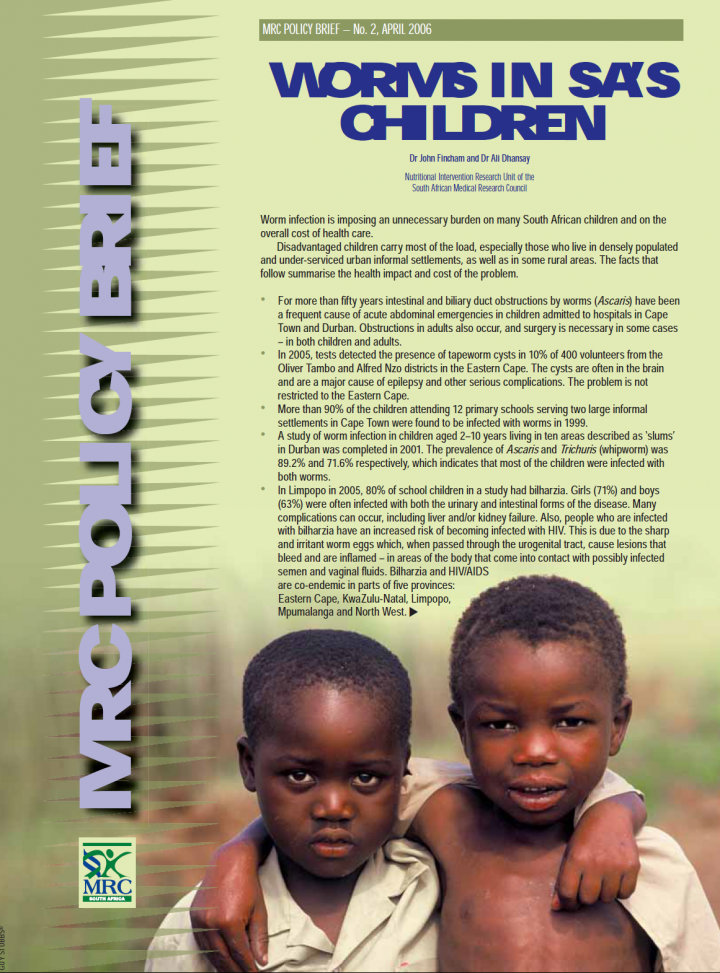
Published in: 2006
Pages: 2
Publisher:
Nutritional Intervention Research Unit of the South African Medical Research Council, South Africa
Author:
Fincham, J., Dhansay, A.
Uploaded by:
Elisabeth von Muench
Partner profile:
common upload
10094 Views
118 Downloads
Content - Summary
Worm infection is imposing an unnecessary burden on many South African children and on the overall cost of health care. Disadvantaged children carry most of the load, especially those who live in densely populated and under-serviced urban informal settlements, as well as in some rural areas. The facts that follow summarise the health impact and cost of the problem.
RECOMMENDATIONS
1. Disadvantaged South African children would benefi t, in terms of health and education, from prevention and control of infection by worms. Regular, synchronised deworming is the quickest way to help these children and to eventually reduce the overall cost of health care. Operational research conducted at numerous Schools has shown that a national deworming programme would be entirely feasible. There is strong demand for deworming from both children and parents.
2. There is a need for an offi cial NDOH policy on school-based deworming. Guidelines on prevention and control of infection by worms have been prepared for the NDOH by researchers at the MRC, the Universities of Pretoria and KwaZulu-Natal and the HSRC. The guidelines are presently circulating within NDOH, and it is recommended that they become offi cial policy and be put into practice.
3. Regular deworming at schools would be more cost-effective and sustainable if importation of less expensive tablets is allowed, subject to quality control, and if participatory health care methods are used.
4. Funding is needed for the implementation of sentinel surveys to monitor worm infection at known problem sites at suitable intervals, both in South Africa and in other SADC/NEPAD countries.
5. Funding is needed for clinical trials of the effi cacy and safety of new anthelmintics under South African conditions, and market research should be undertaken to establish the least costly methods of procurement of effective deworming medicines.
6. Research to defi ne probable interactions during co-infection by worms and major epidemic diseases (especially HIV/AIDS) in South Africa needs to be a high priority and must be funded. When worm infection is highly endemic, it is possible that immunisation could be less effective. This implies that the risk of infection with HIV/AIDS, tuberculosis and malaria could increase and that the progression of these diseases may be faster.
Bibliographic information
Fincham, J., Dhansay, A. (2006). Worms in SA's children - MRC Policy Brief. Nutritional Intervention Research Unit of the South African Medical Research Council, South Africa
Filter tags
English Factsheets and policy briefs Sub-Saharan Africa














